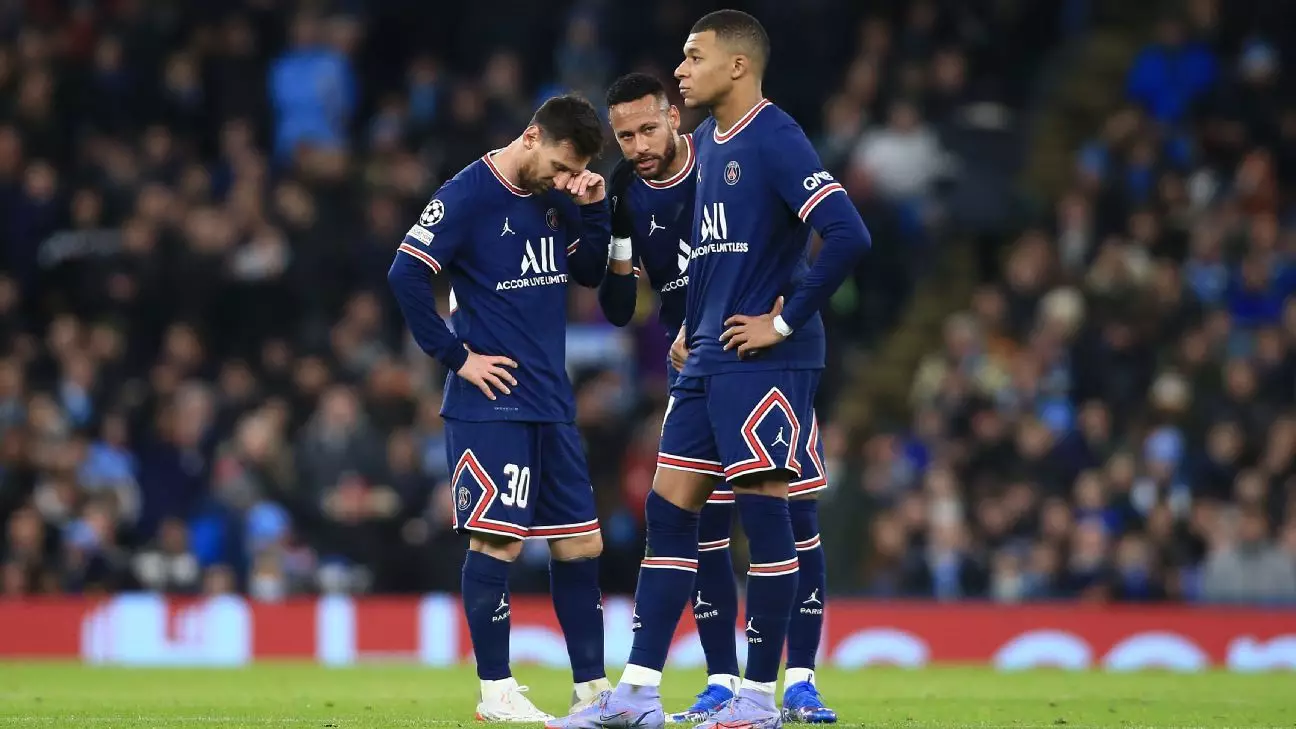Neymar da Silva Santos Júnior, the renowned Brazilian striker, has recently sparked conversations within the football community with claimed insights regarding his former teammate Kylian Mbappé and the intricate dynamics at Paris Saint-Germain (PSG). His remarks, shared in a candid podcast interview with World Cup champion Romário, delve into not just his personal journey but also illuminate the often tumultuous nature of professional football when balanced against the backdrop of pride and reputation. As Neymar finds himself entangled with injuries at Al Hilal, it beckons a reflection on his past, present, and future as an athlete.
In dissecting Neymar’s comments about Mbappé, it’s essential to note the significance of ego in high-level sports. Neymar’s assertion that the arrival of Lionel Messi at PSG incited a “little jealousy” in Mbappé raises pertinent questions about interpersonal relationships in a team where multiple superstars co-exist. Neymar referred fondly to his time alongside Mbappé, calling him the “golden boy” and acknowledging their strong partnership. However, he also highlighted how the introduction of Messi into their ranks altered the dynamics, suggesting an emotional shift rather than purely professional rivalry.
What Neymar’s insights reveal is that while teamwork is celebrated as a cornerstone of success, the introduction of new talent—especially of Messi’s caliber—can stir insecurities among established players. This situation is emblematic of a larger theme in football where the balance of teamwork and individual ambition can lead to either remarkable success or a breakdown in collaboration.
The Brazilian forward’s remarks concerning the issues at PSG relating to “big egos” make clear that having multiple stars on a team does not guarantee harmony or victories. He suggested that the problem often lies not in the talent alone but in the collective attitude and commitment of the players. Neymar stated, “You have to know that you don’t play alone,” emphasizing the need for mutual support among players. The implication here is profound; a functionally effective team is one where individual ambitions are aligned with the overarching goals of the collective.
Neymar’s reluctance to name specific players who contributed to the team’s struggles is telling. It could indicate a desire to maintain professional relationships or a recognition of the complexity of human emotions in competitive environments. Regardless, the reality that egos can hinder performance is not just a lesson for PSG; it permeates all forms of team sports.
As Neymar navigates his tenure with Al Hilal, where injuries have prevented him from making a substantial impact, his future becomes a focal point of speculation. His manager recently acknowledged Neymar’s current unregistered status due to ongoing injury struggles, asserting that the decision about his future ultimately rests with the player. This situation presents a crossroads for Neymar—a chance to reassess where he stands in the sport.
Reports of interest from MLS clubs, including the Chicago Fire, suggest a potential new chapter for Neymar that may rekindle his passion for the game. A shift to North America could provide him with the fresh environment he needs to rediscover his form. However, the question remains whether he will pursue a return to Brazil, a land that longs for its prodigal son to revive his legacy in front of a home crowd.
Neymar’s journey is far from ordinary, and the future holds immense possibilities. As he contemplates the road ahead, his reflections on his time at PSG alongside figures like Mbappé and Messi serve as pivotal reminders of the complexities inherent in professional sports. The challenges posed by ego, relationships, and injuries are not just obstacles but also opportunities for growth and redemption. As Neymar weighs his options, fans, analysts, and fellow athletes alike will be watching closely, eager to see how one of football’s brightest talents reinvents himself in the chapters yet to come.

